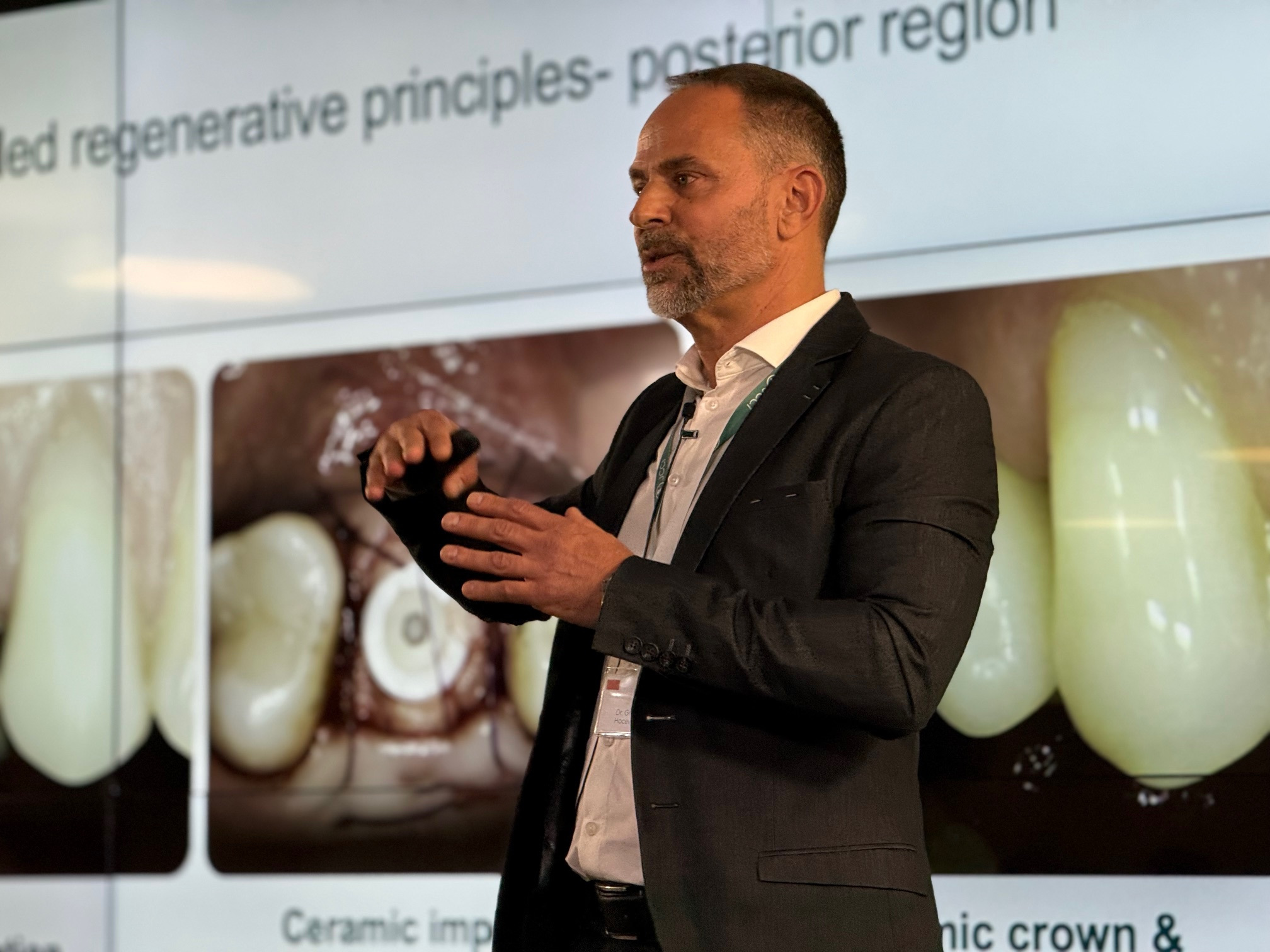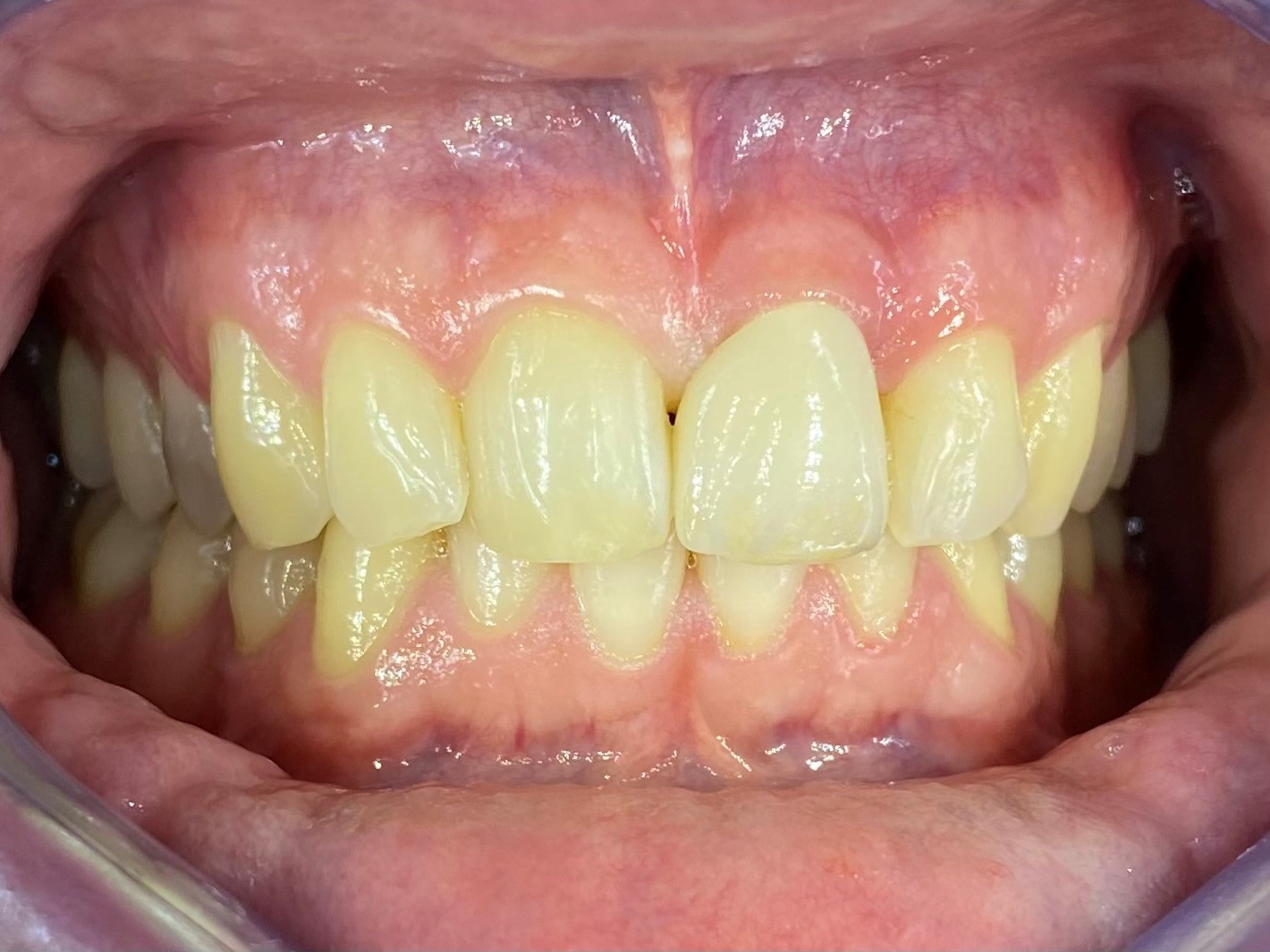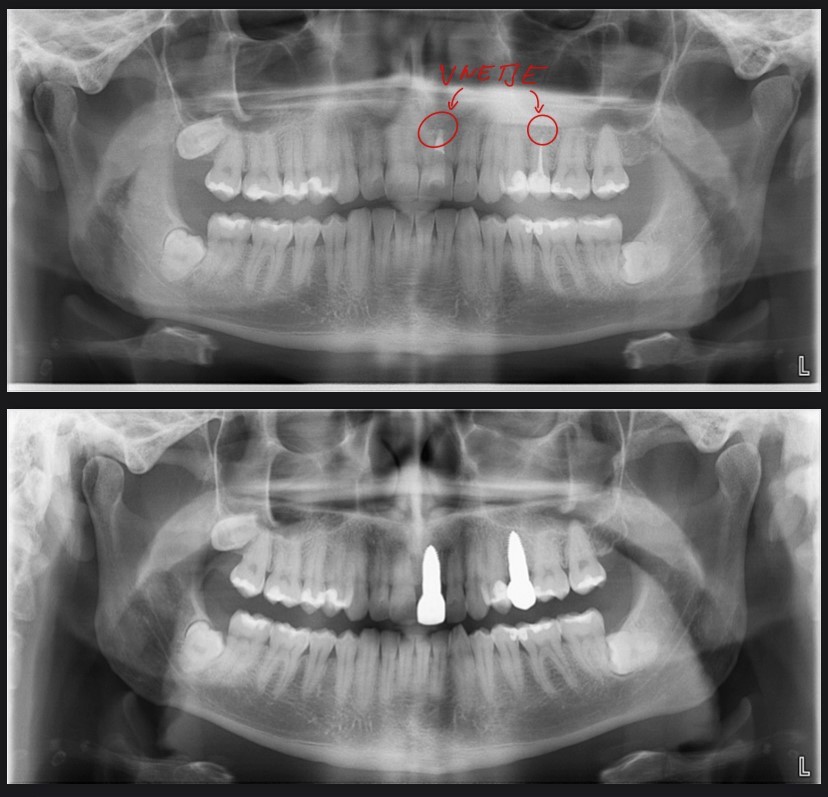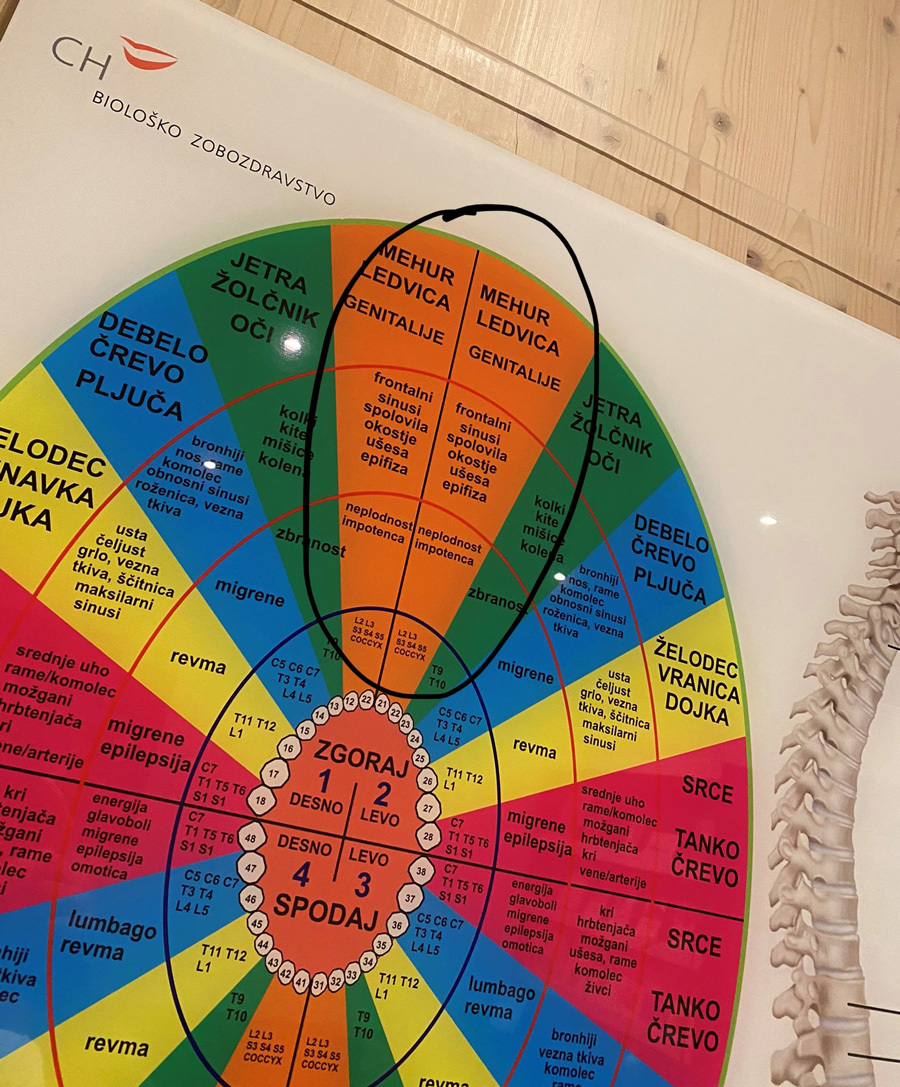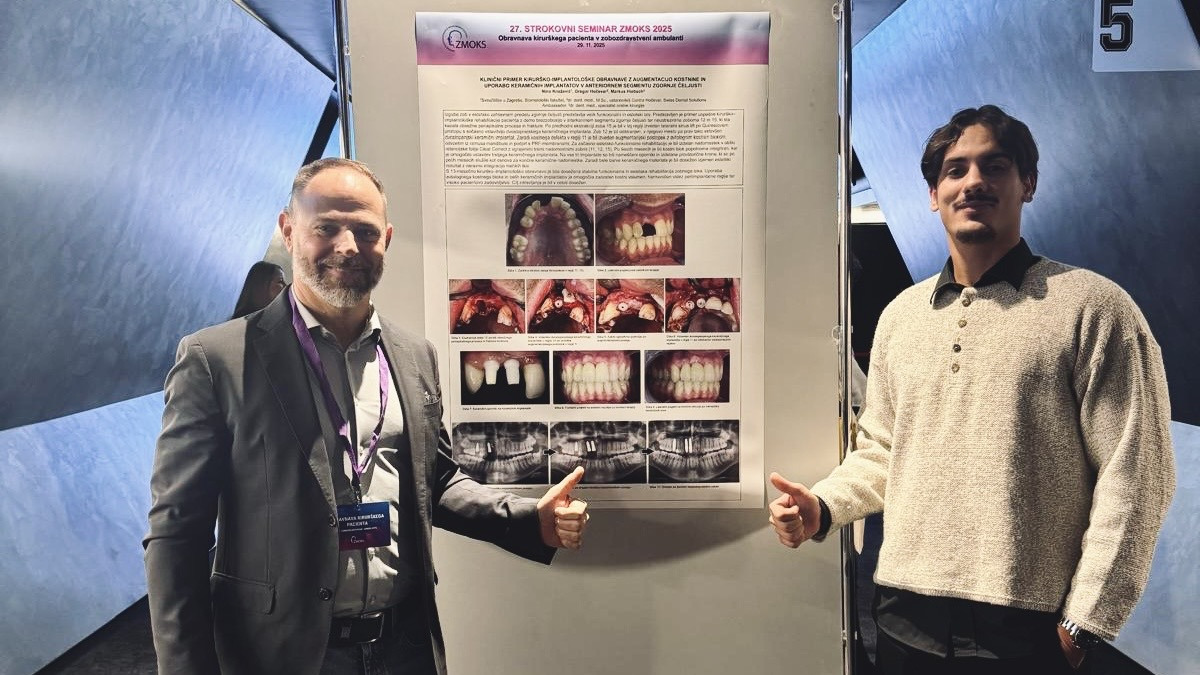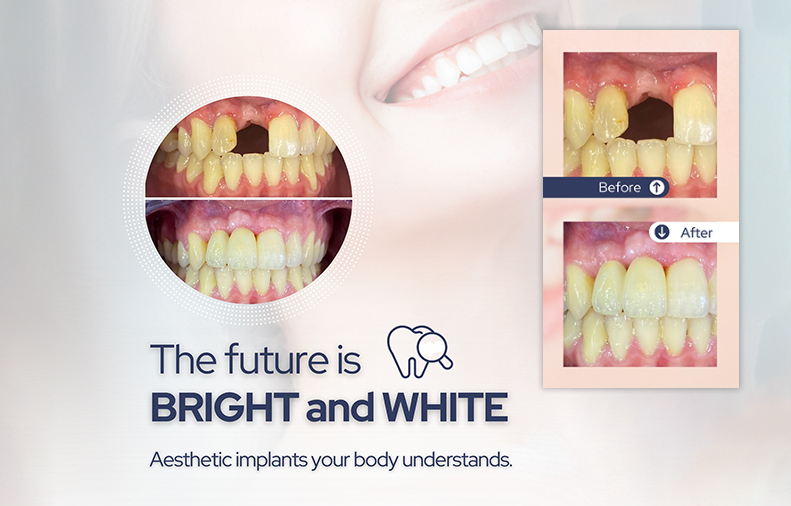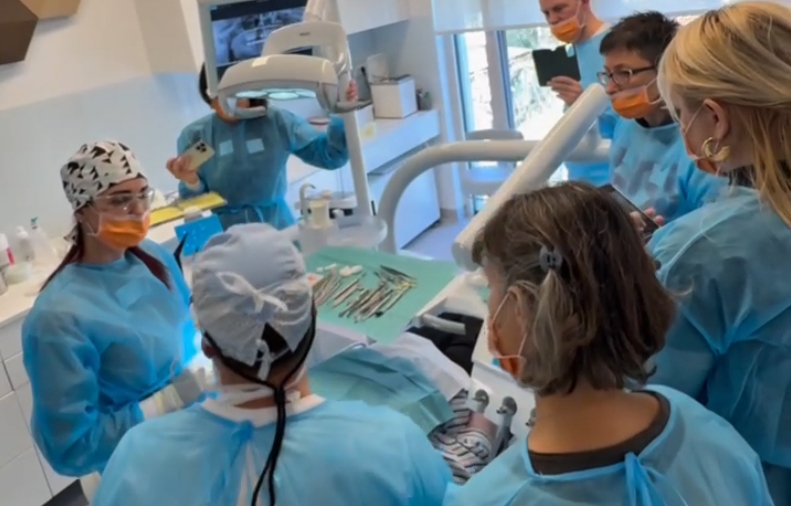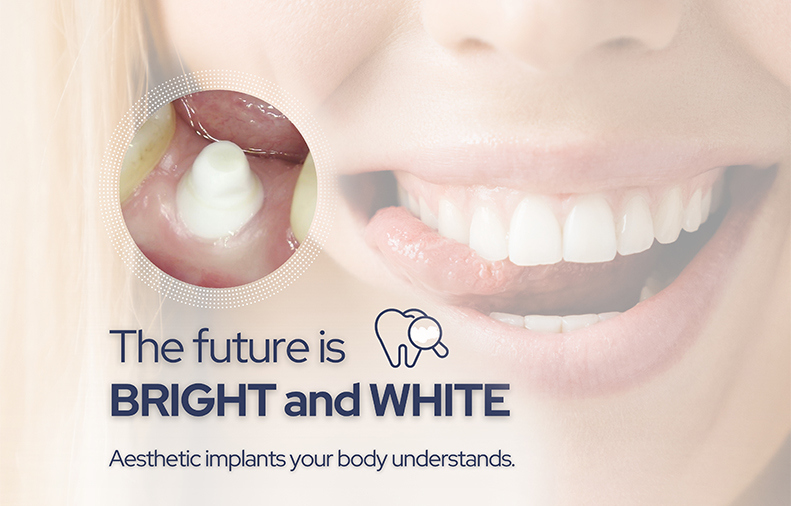Circular hair loss is called Alopetia areata and is a rare autoimmune disease when the body attacks its own hair follicles, causing circular hair loss. It most often occurs on the scalp, but it can also affect areas of the chin where sharply limited bald spots appear. This phenomenon can occur in connection with the presence of an inflammatory focus in the oral cavity. For example, a chronically inflamed tooth can cause such a reaction, but when such tooth is removed, the hair begins to grow again.
Our patient undertook a comprehensive search for possible causes, and came across information that the cause may be in the mouth.
We performed a thorough examination of the oral cavity, all the necessary diagnostic tests (Intraoral camera, X-ray, CT) and found two dead, sore teeth - anterior one (incisor) and the fifth (premolar). Both teeth were removed, bone areas were cleaned, disinfected with ozone, and two ceramic implants were inserted in the same procedure, and temporary crowns were placed. After 4 months of integration, the temporary crowns were replaced with full ceramic ones and the treatment was completed.

The patient and his chosen one also tried for many years to conceive a child, but without success. Infertility is a common problem that is still not recognized in a certain percentage of cases today. A month after the operation, they were delighted. The partner got pregnant.

Teeth are connected to certain organs via meridians (known from Chinese medicine).
If the teeth are healthy, then by biting across the meridians they stimulate distant organs. If they are dead, inflamed, they can cause an imbalance, a disorder in the organ. In this case, we pulled out an inflamed unit connected to the kidneys, bladder, gynecological organs, and prostate. It is also associated with fertility and potency. A dead unit can therefore represent a disorder in the functioning of these organs and a disorder of potency. When such a tooth is removed, the disorder is also removed and the body begins to function normally.

